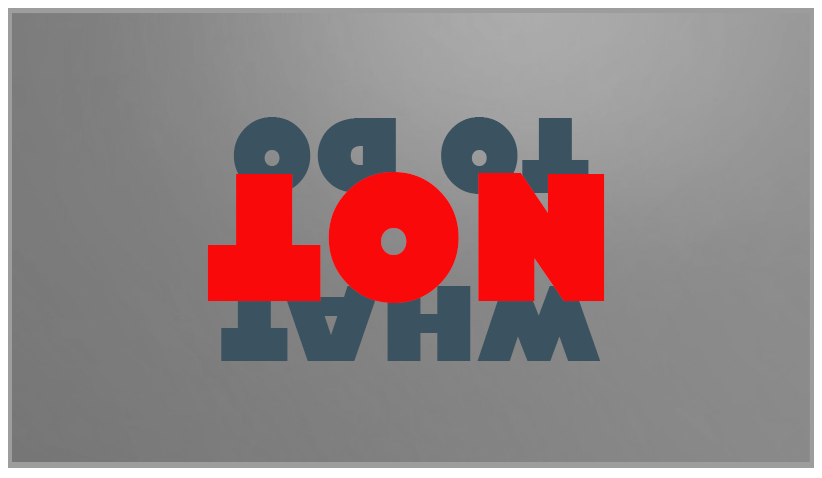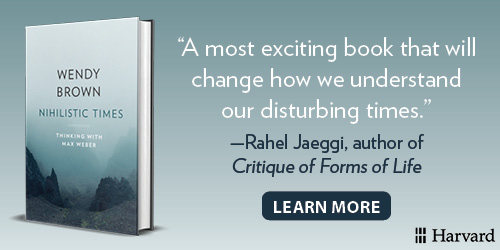Theoria Publishes Recap & Assessment of CNRS Plagiarism Scandals
The French National Centre for Scientific Research (CNRS) hosted two related plagiarism scandals in recent years. One concerned the serial plagiarism of one of its medieval philosophy researchers. The other concerned the attempted whitewashing of this plagiarism by a CNRS-appointed commission tasked with investigating the plagiarism charges. A recent editorial in the journal Theoria recounts these events and makes some recommendations.

The author of the editorial is Sven Ove Hansson (Royal Institute of Technology, Stockholm). In the sections concerning the investigative commission, he first notes its self-described task:
“To distinguish between plagiarisms properly so called, on the one hand, and, on the other, what might be considered borrowings of formulations concerning matters considered to be part of the knowledge shared widely by those who are expert in the area.”
This is “strange”, he says, “to say the least”
since it introduces a distinction that is absent in the international literature on research ethics. It is also unclear how long the ‘borrowed’ formulations could be allowed to be without being counted as plagiarism. Even worse, it is not explained how and why the fact that something is ‘knowledge shared widely by those who are expert in the area’ can justify unrecognised verbatim use of someone else’s expression of that knowledge.
Referring to the plagiarizing author as “AA” (for “accused author”), Hansson notes some “remarkable omissions” in the commission’s report:
- It does not report any attempt by the committee itself to find possible cases of plagiarism in AA’s texts.
- It does not contain a list of potentially problematic text passages.
- It does not contain any presentation side-by-side of alleged sources of plagiarism and allegedly plagiarised texts.
- It does not mention that several texts by AA had been retracted by journals for plagiarism.
- It does not mention any of the findings by the editorial boards that led to retraction of articles. In particular, it does not mention the several cases of swap plagiarism.
He notes that “without evidence, the committee claimed that a large part of previous accusations of plagiarism were inaccurate,” quoting its report:
“Once the Commission had thus come to realize that many passages had been wrongly accused of being plagiarized, the proportion of borrowings open to accusation in the various articles became considerably smaller.” (Anon, 2021)
To this he replies:
We are not told which these ‘wrongly accused’ passages were. All accusations of plagiarism that had been raised in public against AA’s texts were very precise, specifying a passage in one of AA’s publications and an identical or almost identical passage in a previous publication by someone else. The committee claims that a large part of these textually coinciding passages were not cases of plagiarism, but it does not tell us which of the allegations of plagiarism were wrong and why they were wrong. This means that the report contains accusations that are so unspecified that it is impossible for the accused (namely those who reported the verbatim coincidence of texts) to defend themselves against them.
Hansson then quotes what he calls a “remarkable accusation” made in the commission’s report:
“[AA] has been the victim of an injustice, because her accusers have fashioned and diffused, wrongly, if not with ill intent, the shameful image of a ‘serial plagiarist’, who composed all […] writings simply by copying what others have written (see ‘Philosopher Revealed as serial Plagiarist’ [multiple updates], Daily Nous).” (Anon, 2021)
In response, he says:
The alleged statement that all of AA’s writings were copied cannot be found in Daily Nous (Weinberg, 2020, 2021). It is difficult to understand why an (anonymous) commission tasked to investigate AA’s research conduct found it necessary to attack some of AA’s critics with a blatant lie.
He then shares the commission’s new and “unconventional” conception of plagiarism and its application to the case of AA:
“[T]he Commission decided, after extensive discussion, that it should make a clear distinction between academic fraud in the strict sense, which involves a deliberate intention to deceive, and undisclosed verbal borrowings (tacit citations), resulting from blameworthy procedural negligence, but not constituting plagiarism.
“The results of our qualitative analysis show that there is neither academic fraud nor plagiarism properly so called in [AA’s] English articles. Moreover, there is no sign to be found of a wish to appropriate anyone else’s ideas or of an intention to deceive the reader about the origin of the ideas put forward in the articles.” (Anon, 2021)
Hansson remarks:
It would be interesting to know by what type of ‘qualitative analysis’ the commission was able to find out what AA’s intentions were when copying long texts, or when swapping names in quotations. We are told what AA’s intentions were not, but we are not told what they were.
Towards the end of the editorial, Hansson notes that “the mistakes made by CNRS and its commission in this case provide us with an excellent list of what not to do when dealing with suspected academic fraud.” Here’s that list:
- Do not assign the task of assessing suspected academic fraud to an anonymous committee.
- Do not instruct a committee tasked with evaluating suspected plagiarism to deviate from standard academic definitions of plagiarism.
- In such a committee, follow established definitions and criteria. Do not invent definitions of your own that will seem to be tailored to denounce or (as in this case) exonerate an accused person.
- Do not make any false accusations against anyone, neither persons accused of academic fraud nor persons accusing them. (The Daily Nous example described above is a remarkably clear case.)
- Do not dismiss without investigation the findings by others who have investigated the case or parts of it.
- Do not leave out essential information from your report (as in this case the journal retractions and the swap plagiarism).
The whole article is here (though it may be paywalled).
Note: In commenting, if you find it necessary to refer to the researcher who engaged in the plagiarism, please follow Hansson and refer to her as “AA”. Thank you.



Do the specialist authors of the CNRS report—philosophers Ruedi Imbach, John Marenbon, Tiziana Suarez-Nani—still stand by it, with their suggestion that the “accusers” may have had “ill intent” in reporting the plagiarism?
I think the commission’s concept of a “tacit citation” is marvelously ingenious. We might ordinarily think that something has to actually be explicit and in print to constitute a citation, as opposed to a mere allusion, etc., but this seems to be a mistake. I am looking forward to entertaining a job offer from CNRS on the basis of my many brilliant tacit publications.
Don’t you already have a tacit job offer from them?
Damn and blast! I think I might have tacitly declined it then. Either that or they’re tacitly paying me.
It seems to me as if theTheoria editorial’s interpretation of the Commission’s findings is extremely unsympathetic. It says that commission was given the task of distinguishing between “plagiarisms properly so called”and “borrowings” of formulations of common knowledge (language used by the President of the CNRS in formulating their charge). And, it complains, this is “strange, to say the least” because [the distinction] is “absent in the international literature on research ethics.”
Yet, when you look at the CNRS report, you find that they quote definitions formulated by the European Office of Research Integrity (academic fraud is an intentional breach . . . ) and the CNRS Ethics Committee (plagiarism is the appropriation of an idea).
It’s true that this distinction formulated by the President of CNRS is of little interest to a journal. “Borrowings” of the above kind are impermissible. And the Commission implicitly acknowledges this, saying that AA “failed to keep to the requirement for a scrupulous and irreproachable method of work, which every researcher should observe.” They do not question the journal retractions, but they offer various excuses for AA. These excuses are certainly germane to any disciplinary action contemplated by CNRS.
The members of the Commission are three eminent scholars. The Theoria editorial suggests that they lack judgement, or perhaps even integrity. That’s not fair. The President of CNRS wanted to know something a bit different than the editor of Vivarium. This is perfectly reasonable.
“They do not question the journal retractions, but they offer various excuses for AA. These excuses are certainly germane to any disciplinary action contemplated by CNRS.”
If you are hired to a privileged post based primarily on your publication record, then if those publications are retracted, so should be your post.
Sure AA can publish 4-5 papers a year if they don’t need to spend their time finding good formulations of what constitutes common knowledge.
It’s a cruel world, but it’s a cruel competition too. AA had plenty of non-plagiarizing colleagues who would have been more eligible to be hired to the post.
You are expressing a legitimate point of view. But it has little to do with what the Commission was asked.
Let’s be clear. It had already been established that violations deserving of retraction had occurred. The President of CNRS asked the Commission to determine whether those violations amounted to plagiarism or stayed at the lower level offence of “borrowings” of formulations. That’s a legitimate question–something like “Is it first or second degree murder?” And it takes a high level of expertise to determine the answer.
Commission was very clear: there was legitimate scholarship worthy of publication in each article. But because AA was writing in English, which is not her first language, she “borrowed” formulations, a clear offence but not as bad as appropriating ideas. You suggest that AA didn’t spend the time finding good formulations of common knowledge. In fact, the Commission says the almost the exact opposite. Namely that she found new knowledge but occasionally used other people’s words to express those findings. (By the way, the accusations of “swap plagiarism” don’t make it worse. Swap plagiarism is a borrowed formulation except used on a different target than the original. But that borrowing could be in the service of a new finding, or not.)
To me it seems as if the Theoria editorial criticizes the Commission for using its high level of expertise to answer the question they were asked. That is not fair. Further, it uses all sorts of polemic to suggest that somehow these eminent scholars had been lazy: they did not lay our side-by-side passages, etc. But why should they lay out side-by-side passages?–Such a procedure wouldn’t determine whether the parallels were guilty of the worse offence. That is pretty shoddy.
Sorry, but I find it pretty mind-boggling that Theoria would make such half-baked criticisms of eminent scholars.
Well, maybe it’s fruitless to prolong this discussion much further, as most of this was already discussed when the issue came up last year.
But, with some others in that discussion, I find the distinction between “plagiarism” and “borrowing” ludicrous: I simply don’t know how you can express “knew knowledge” by using other people’s words, and it’s not what we teach our undergraduates. At my school, if an undergrad “borrows” in her paper, she goes straight into our academic honesty office, and if she does it more than twice during her studies, she is out. That’s it. Whether there is any other “legitimate scholarship” in that paper or not. Whether they are native English speakers or not. These are the rules.
FWIW, English is not my native language either, and as far as I’m aware, in the medievalist community, it’s not the majority’s. If that alone gave us license to “borrow” so freely, well, then that would be the end of it. Let’s hope it won’t come to that.
*** ‘knew knowledge’ = ‘new knowledge’ :). Misleading typo.